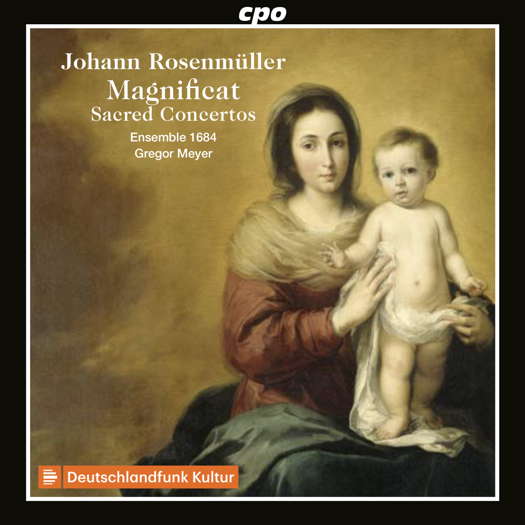- Kurt Masur
- Guillaume Tell
- Tom Krause
- Donald H White
- Yuli Turovsky
- Covent Garden
- Dores André
- Grimethorpe Colliery Band
 SPONSORED: Vocal Glory - Massenet's Manon in HD from New York Metropolitan Opera, enjoyed by Maria Nockin.
SPONSORED: Vocal Glory - Massenet's Manon in HD from New York Metropolitan Opera, enjoyed by Maria Nockin.
All sponsored features >>
 DISCUSSION: What is a work? John Dante Prevedini leads a discussion about The performing artist as co-creator, including contributions from Halida Dinova, Yekaterina Lebedeva, Béla Hartmann, David Arditti and Stephen Francis Vasta.
DISCUSSION: What is a work? John Dante Prevedini leads a discussion about The performing artist as co-creator, including contributions from Halida Dinova, Yekaterina Lebedeva, Béla Hartmann, David Arditti and Stephen Francis Vasta.

The Perfect Musical Mixture
GERALD FENECH listens to music by Johann Rosenmüller
'Gregor Meyer and his forces give disciplined yet highly laudable performances, and their commitment to the cause is spirited and vibrant.'
Johann Rosenmüller, who played an important part in transmitting Italian musical styles to the north, was born in Oelsnitz on 24 August 1619. He studied at Leipzig University, graduating in 1640. From 1651 he served as organist of the Nikolaikirche in the same city, where he was promised the post of cantor. In 1654 he became director of music in absentia to the Altenburg Court, however, in the spring of the following year Rosenmüller lost all his positions and fled from Leipzig. The reason for this was accusations of sexual misconduct that may have led to prosecution. From being the star of the city's musical scene he became a persona non grata overnight, and from then on he led a life in the shadows.
Following this harrowing experience, Rosenmüller's fortunes changed dramatically. Indeed, his music was almost completely ignored, and for the next three decades he was only spoken of in whispers. But not all was doom and gloom. Finding himself in this dire situation, Rosenmüller fled to Italy and by 1658 he was employed at Saint Mark's in Venice. He composed many vocal pieces while teaching at an orphanage for girls - the Ospedale della Pietà. The works of Giovanni Legrenzi and Arcangelo Corelli were among his Italian influences, and his sacred works betray the style of Heinrich Schütz.
Listen — Johann Rosenmüller: Magnificat
(track 1, 0:03-0:53) ℗ 2021 cpo :
In his last years, the composer returned to his native land with Duke Anton-Ulrich of Brunswick-Wolfenbüttel, at whose court he served as choir master. He died there on 10 September 1684 and is buried in this same city. During his lifetime, Rosenmüller's music was much admired, and his sacred music in particular came in for high praise.
Listen — Johann Rosenmüller: Domine, probasti me
(track 3, 0:12-1:08) ℗ 2021 cpo :
After his death, despite all that he had to endure, his works were celebrated whenever they reached listeners' ears, and even the great J S Bach borrowed snippets from his compositions.
So what was so special about the music of this man from the Vogtland region in Germany? Probably the perfect musical mixture. Rosenmüller was able to fuse the new Italian colours and sensitive sounds with the seriousness of central German forms. Through this innovation he was able to form an unmistakable and noble style. And this, despite the fact that the composer's public career ended near its peak.
All the compositions on this issue are prime examples of Rosenmüller's musical genius. His unique craftsmanship, flowing counterpoint and vivid rhythmic timbres all come to the fore, emphasizing the composer's forward-looking style. On top of all this, his smooth and charming melodies coupled with his skillful organizational acumen make of these baroque gems a persuasive case indeed.
Listen — Johann Rosenmüller: Welt, ade! ich bin dein müde
(track 7, 0:31-1:30) ℗ 2021 cpo :
Gregor Meyer and his forces give disciplined yet highly laudable performances, and their commitment to the cause is spirited and vibrant.
Listen — Johann Rosenmüller: Bleibe bei uns, denn es will Abend werden
(track 9, 7:10-8:09) ℗ 2021 cpo :
Excellent sound and annotations complete a disc full of imaginative music that soothes the soul.
Copyright © 7 May 2021
Gerald Fenech,
Gzira, Malta

CD INFORMATION - ROSENMÜLLER: MAGNIFICAT; SACRED CONCERTOS
MORE SEVENTEENTH CENTURY MUSIC ARTICLES


